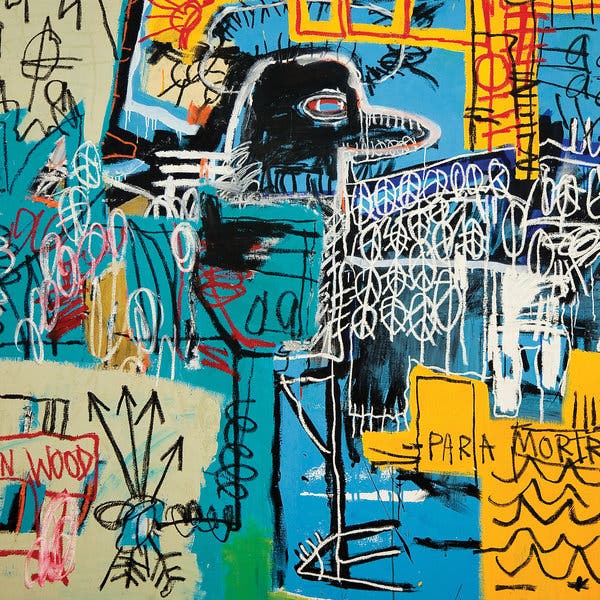Even when the Strokes were a brand-new band, nostalgia was a big part of their appeal. “In many ways, they’ll miss the good old days/Someday,” Julian Casablancas sang on “Someday” from the Strokes’s 2001 debut album, “Is This It.” At the time, the Strokes were already being hailed as a second — maybe third or fourth — coming of a terse, hardheaded, jaded but hopped-up New York City rock lineage running from the Velvet Underground through the New York Dolls and the Ramones.
Now, 19 years after the Strokes released their first recordings and seven years after their previous full-length album, “Comedown Machine,” the band has released “The New Abnormal.” (They announced the album title in early February, weeks before “the new abnormal” became a familiar description of life during the Covid-19 pandemic.)
It’s the sixth album by the Strokes, always a supremely self-conscious band. And as the band completes its second decade, its invocations of nostalgia have folded in on themselves: on the music the Strokes chose as their foundation, on two decades of the Strokes’s own catalog and on the conflicting pressures of enjoying flexing their strongest instincts and moving ahead. “I want new friends but they don’t want me,” Casablancas complains, resignedly, in “Brooklyn Bridge to Chorus.”
The Strokes have the boon and burden of making three indelible albums: “Is This It” (2001), “Room on Fire” (2003) and — though it was less appreciated at the time — ”First Impressions on Earth” (2005), which bristles equally with guitar hooks and misanthropic barbs. The next two albums, and the 2016 EP “Future Present Past” (note the title), turned inward and grew opaque; band members also took time for solo projects. But the early Strokes albums built lasting loyalty, particularly in New York; the Strokes were headliners at Governors Ball in 2014 and 2016, and on New Year’s Eve 2019 at the Barclays Center in Brooklyn.
“The New Abnormal” was produced by Rick Rubin, who in recent decades has become known as someone that established acts — Metallica, the Dixie Chicks, Red Hot Chili Peppers — go to for a midcareer reckoning, a reconsideration of a band’s essence as it grows up. “The New Abnormal” clarifies what had already become increasingly obvious: that the Strokes never intended to reincarnate punk, garage rock or proto-punk.
Brevity was fine, but the primitivist blare and blur of punk were by no means what the Strokes were after. The band’s true commitment is to counterpoint: to putting interlocking melody at every level of a song. The guitars of Nick Valensi and Albert Hammond Jr. are in constant dialogue, separated in stereo with contrasting tones, while Nikolai Fraiture’s bass offers as much countermelody as impact; Fabrizio Moretti’s drums goad and answer them all but leave space. The instruments lean toward brief, staccato parts, simultaneously pacing and pulling against sustained melodies from Casablancas. Even on lesser Strokes albums, the musical ideas always snap neatly into place.

On “The New Abnormal,” tempos are often slower than they were on early Strokes songs, which only exposes more of the songs’ intricacies. At any speed, Strokes tracks are clockworks, not tantrums or squalls. And they haven’t gotten lazy; the album opens with “The Adults Are Talking” in perky, vintage Strokes style, with guitars picking steady eighth-notes, bouncing back and forth, stacking up little lines that mesh crisply or tease with dissonance.
“The ’80s bands, where did they go?,” Casablancas sings in “Brooklyn Bridge to Chorus,” simultaneously acknowledging influences and musing on the half-lives of pop careers. Throughout “The New Abnormal,” the band summons the full-bodied sounds of the 1980s, with spacious guitar tones and what may or may not be blippy electropop synthesizers (Valensi has ways of drawing synthesizer-like tones from his guitars). One song, “Bad Decisions,” harks back to Billy Idol’s “Dancing With Myself,” sharing the songwriting credits with Idol and his collaborator Tony James. It’s the Strokes admitting that they, too, had some not-so-hip formative years.
“The New Abnormal” has the Strokes thinking in the long term not only about pop careers but about relationships, even the state of the environment. Casablancas remains skeptical of just about everyone, definitely including himself. In “Why Are Sundays So Depressing” he warns, “Don’t ask me questions/that you don’t want/the answers to.” But he’s no longer petulant or dismissive. In a few songs he’s even apologetic, particularly in “Selfless,” which could easily be a marriage proposal. There’s a broader view in “Eternal Summer,” a majestic march that warns bitterly about climate change. “Summer is coming, won’t go away,” Casablancas croons in falsetto; later, he brings a punky rasp to snarl, “They got the remedy/But they won’t let it happen.”
“At the Door” is the album’s most radical departure from the typical Strokes sound. There are no drums; the music gets its pulse from rhythmic synthesizer tones and rippling guitar chords, and near the end the parts multiply into an overarching neo-Baroque polyphony of computer-tuned vocals and countermelodies. “Use me like an oar to get yourself to shore,” Casablancas offers in a moment of pure benevolence. It’s not the early, edgy Strokes, but what they’ve grown up into. Maybe the Strokes won’t make new friends with this album, but old friends can get closer.
 EU News Digest Latest News & Updates
EU News Digest Latest News & Updates



